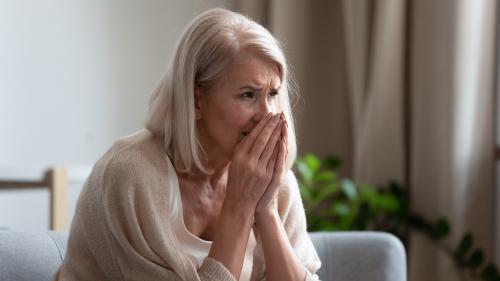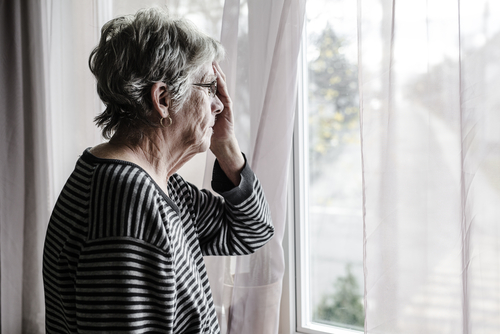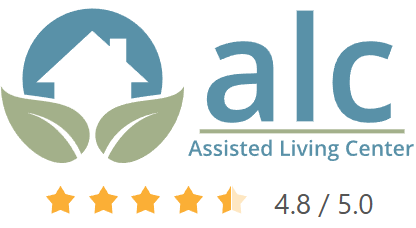All around us, anxiety and depression are becoming increasingly common. Although they are not a natural part of the aging process and should not be accepted as such, they appear to be especially common among middle-aged and senior citizens. Perhaps the modern way of life has something to do with the trend. Anxiety can be overwhelming, and its symptoms can be so severe that they require treatment, which is why we need to be there for those struggling with it.
When it comes to the elderly, the risk of developing anxiety and depression could be considerably higher if they live alone and have limited mobility: they often become isolated and deprived of companionship or even a remote possibility of a social life, which further raises the risk.
It is a vicious circle, but you can help break it, and professionals working in the domain of home care in Santa Monica can help you do that. But how exactly do we recognize anxiety, what is its effect on the elderly and what is the best mechanism to cope with it?
How to recognize anxiety in the eldelry?
Disorders such as anxiety and depression can be triggered by various stressful life events, be it changing living arrangements, downsizing or relocation, loss and bereavement or health issues and changes in the brain and the nervous system, all of which are more likely as we age.

It may be difficult to recognize the problem because of the lower rate of detection of mood and anxiety disorders. The elderly population is not as likely to seek medical assistance for issues concerning their mental health as they are for issues concerning their physical health, which is why it is important to raise awareness of the importance of mental health care among the elderly population.
Your elderly loved one needs to know that their depression, anxiety, fear, sense of dread and uncertainty are not things they must simply accept and learn to live with. The first step to helping a person overcome a problem is learning to recognize the signs of the problem and acknowledge that the problem is there.
Potential signs that your elderly loved one suffers from anxiety and depression include:
- Cognitive problems.
- Loss of concentration.
- Loss of interest in activities.
- Nagging aches and pains.
- Digestive issues.
Why am I getting more anxious as I get older?
One explanation is that our stress tolerance level drops as we age. In other words, how we perceive one and the same event will not be the same in different life stages. The older we get, the more sensitive we become to stressful situations. When faced with a trigger, we experience an overwhelming gut reaction that is impossible to ignore. Dramatic changes in life the elderly often face such as losing a loved one or moving to a nursing home could further exacerbate the situation.
Of course, not all people are the same and not everyone will have the same downward spiral experience as they age. As we said before, mood swings and anxiety are not a normal part of aging and they do not affect everyone.
Another plausible explanation concerns a person’s physical health issues and ailments. Mental health disorders could be directly caused by physical health disorders and their fear of the dying process.
How do you stop anxiety in the elderly?
It is important to make your eldelry loved one feel loved and understood. They need to know they are not all alone with their grim thoughts, fears and uncertainty. Their anxiety may be exacerbated by the fact that they are rapidly losing their independence and nearing their end. Every time a peer dies is a reality check for them, especially if they lose a lifetime partner. This is why they need support, open communication and reassurance.
You may think it is in their best interest for you to protect them from unpleasant news, which is why you may avoid disclosure of relevant medical information to your aging parents. However, this could lead to conflict. Honesty is the best policy after all.
Can anxiety shorten your life?
Studies have shown that even minor psychological distress manifested by symptoms of anxiety and depression a person is under can increase a person’s risk of premature death, especially if this is the case over a prolonged period of time. Anxiety is directly linked to stress, and stress takes a heavy toll on our health and wellbeing.
Does anxiety worsen with age?
While anxiety does not necessarily worsen with age, it is more commonly reported among the middle-aged and senior population. If so, it is important to work on overcoming the problems and eliminating the causes instead of accepting anxiety-ridden life as inevitable.
How do I overcome fear and anxiety?
Mindful action is the only way to overcome fear and anxiety. Getting to the source of the problem is the first obstacle, and the fact that some of the causes of anxiety and fear are not so easily eliminated is the second one.
Here are certain actions you could take:
- Listen carefully
- Offer support and encouragement.
- Learn to recognize drastic changes in behavior
- Suggest treatment and offer a visit to their doctor or medical specialist
- Organize safe outdoor activities
- Involve your elderly loved one in engaging activities
While it may not be the best time for a trip to Santa Monica’s Wexler’s Deli, there are always things to do in the safety and comfort of home, such as looking at old photo albums or reading an entertaining book.
Time to turn the page: comprehensive home care in Santa Monica

At A Better Way in Home Care, we care about the wellbeing of our clients and take a mindful, holistic approach to senior care. The caregivers we will introduce you and your elderly loved one to are compassionate and considerate individuals with experience in looking after seniors throughout the area.
Reach out to us for more information on comprehensive caregiving and companionship services. Schedule your consultation now.








